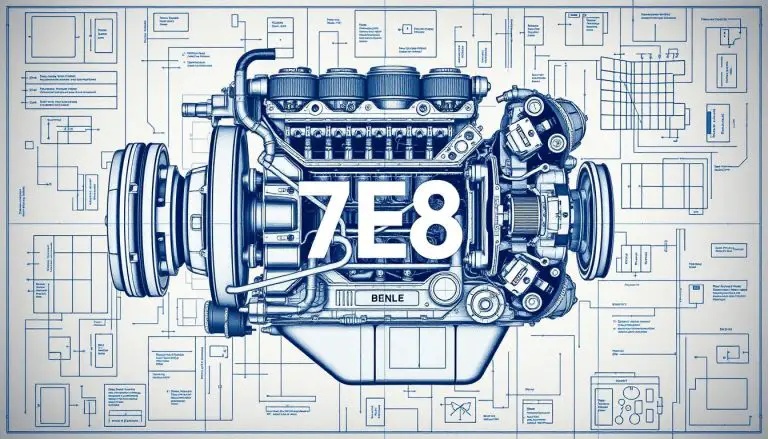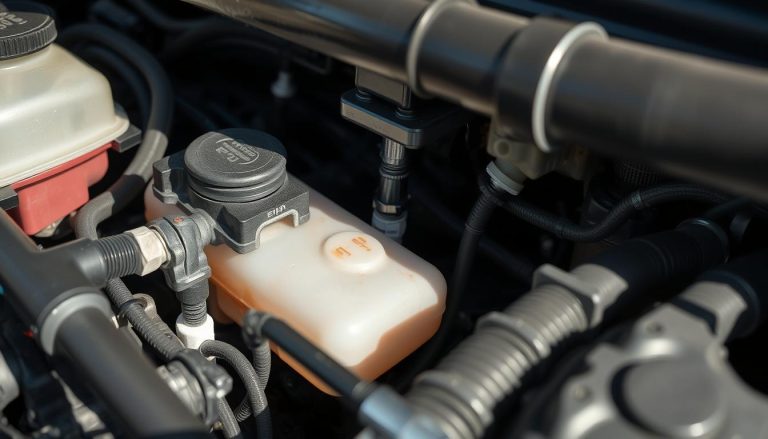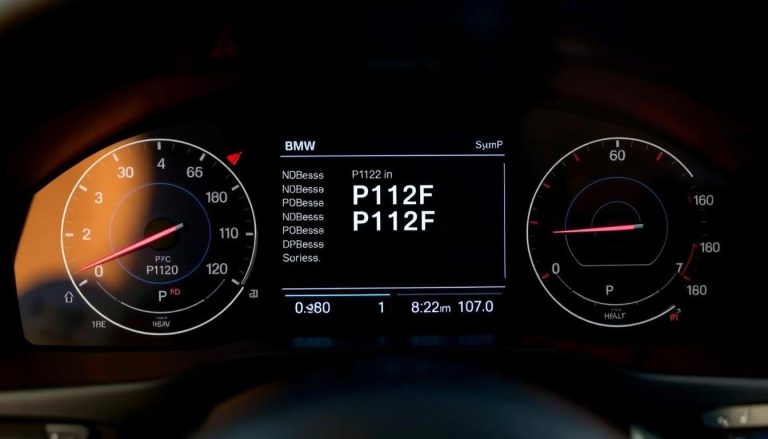When you see the check engine light flicker on your dashboard, among the myriad of trouble codes that could pop up, one that may catch your attention is the P0612 code. This cryptic alphanumeric string points to an issue with the fuel injector control module relay—a crucial component in your vehicle’s performance and efficiency.
But what does this really mean for you and your car? In this blog post, we’ll unravel the mystery behind the P0612 code by exploring its causes, symptoms, diagnostic steps, and effective fixes. Let’s dive into everything you need to know about P0612!
What does the P0612 code mean?
The P0612 code is a diagnostic trouble code (DTC) that indicates an issue with the fuel injector control module relay. This component plays a vital role in regulating the electrical supply to your vehicle’s fuel injectors.
When this relay malfunctions, it can disrupt the flow of electricity necessary for proper fuel injection. As a result, your engine may struggle to perform optimally.
This fault typically triggers the check engine light on your dashboard, signaling that something isn’t functioning correctly under the hood. Understanding what P0612 means helps you address potential problems before they escalate into more significant issues.
In essence, if you encounter this code, it’s essential to investigate further rather than ignoring it and hoping for the best.
What parts can be affected by P0612 code ?
The P0612 code can impact several critical components of your vehicle’s fuel system. The most directly affected part is the fuel injector control module relay itself. This relay plays a significant role in regulating the flow of power to the fuel injectors.
When this component malfunctions, it can lead to erratic operation or complete failure of the injectors. Consequently, other parts like the engine control unit (ECU) may also be influenced as it relies on accurate data from various sensors.
Additionally, wiring and connectors associated with these systems could suffer from wear or damage due to poor connections or corrosion. These issues often exacerbate problems related to fuel delivery and engine performance.
If left unattended, not just one but multiple aspects of your car’s performance might deteriorate over time. Understanding which parts are vulnerable helps pinpoint repairs more effectively.
What are the possible causes of a P0612 code?
The P0612 code can arise from various issues within your vehicle’s fuel injector control system. One common cause is a faulty fuel injector control module relay, which can fail due to wear or electrical problems.
Wiring faults are another major contributor. Damaged wires or poor connections between the relay and the ECU may disrupt signals necessary for optimal performance.
Additionally, low battery voltage or failing components in the power supply circuit might trigger this error code as well.
An issue with the engine control unit (ECU) itself could also be at play; if it malfunctions, it may not send proper commands to manage fuel injectors effectively.
Environmental factors like moisture or corrosion could affect component integrity and functionality, leading to potential failures that register the P0612 code on your dashboard.
What are the common symptoms of a P0612 code?
When your vehicle throws a P0612 code, it often comes with distinct symptoms that signal issues with the fuel injector control module relay.
You might notice poor engine performance. This can manifest as sluggish acceleration or difficulty maintaining speed. In some cases, the engine may hesitate when you press the gas pedal.
Another common symptom is erratic idling. Your car could shake or vibrate unexpectedly while at a standstill, which can be unsettling for drivers.
Fuel efficiency tends to take a hit as well. If you find yourself making more frequent stops at the pump without increased driving habits, this could indicate an underlying problem linked to this code.
Dashboard warning lights may illuminate. Look out for check engine lights; they are often among the first indicators of trouble in your vehicle’s systems.
What are the diagnostic steps for a P0612 code?
Diagnosing a P0612 code involves several key steps to pinpoint the issue. Start by using an OBD-II scanner to confirm the fault. This will provide you with additional trouble codes that may be present.
Next, inspect wiring and connectors related to the fuel injector control module relay. Look for any signs of damage or corrosion that could disrupt communication.
After that, check the voltage and ground at the relay while observing if it activates properly when commanded by the engine control unit. Testing fuses associated with this circuit is also essential; blown fuses can indicate an underlying problem.
If everything appears intact, consider examining the fuel injector control module itself for faults. A thorough review of technical service bulletins (TSBs) specific to your vehicle model might reveal known issues too.
Document all findings as you proceed through these diagnostic steps; this will aid in determining an appropriate repair strategy later on.
How serious Is the P0612 Code? Can I continue driving with the P0612 code?
The P0612 code indicates an issue with the fuel injector control module relay. This can affect how your vehicle’s engine performs, leading to potential power loss or stalling.
Driving with this code can be risky. You might experience rough idling or poor acceleration. If left unaddressed, it could result in more severe damage to the engine components.
While some drivers may choose to continue driving short distances, it’s not advisable for long trips. The problems associated with a malfunctioning fuel injector control system could worsen over time, leading to costly repairs down the road.
It’s always wise to consult a mechanic as soon as you see this code on your dashboard. Timely action can prevent further complications and ensure your vehicle operates safely and efficiently.
What are the repair solutions for a P0612 – Fuel Injector Control Module Relay Control ?
Repairing the P0612 code often starts with inspecting the fuel injector control module relay. A faulty relay might need replacement to restore proper function.
Next, check all wiring and connectors associated with the fuel injector control system. Damaged wires or corroded connectors can cause communication issues between components.
If these parts are in good condition, it’s wise to test the fuel injectors themselves. Sometimes, dirty or malfunctioning injectors can trigger this error code.
In some cases, a software update for your vehicle’s engine control unit (ECU) may be necessary. Manufacturers frequently release updates that resolve performance issues related to specific codes.
Ensure that any underlying electrical problems are addressed before replacing major components. This approach helps prevent recurrence of the P0612 issue down the road.
What other codes may be related to P0612?
When diagnosing a P0612 code, it’s essential to consider other related trouble codes that may surface simultaneously. These can provide deeper insights into the vehicle’s overall health.
Codes such as P0201 through P0208 relate directly to fuel injector issues. They indicate problems with specific injectors and often accompany the P0612 code due to their interconnected functions.
You might also encounter codes like P0685 or P0686, which pertain to power relay circuits or control modules. These could signal electrical issues affecting the fuel injector control module itself.
Additionally, keep an eye out for misfire codes like P0300 through P0306. Misfires can occur when there are fueling inconsistencies linked back to injection system malfunctions tied to a faulty relay.
Identifying these accompanying codes is crucial in resolving underlying issues efficiently. Each provides vital clues about what’s really happening under the hood.
How much does it cost to diagnose and repair a P0612 code?
The cost to diagnose and repair a P0612 code can vary significantly based on several factors. Typically, diagnostic fees range from $75 to $150 at most repair shops. This fee covers the technician’s time spent using specialized equipment to identify the issue.
Once diagnosed, the price for repairs can fluctuate widely depending on what parts need attention. If it’s just a relay replacement, you might be looking at around $100 to $300 in total costs.
However, if more extensive work is required—like replacing wiring or addressing issues with the fuel injector control module—the expenses could soar into the hundreds or even exceed a thousand dollars. Always ask for quotes and consider getting multiple estimates before proceeding with any work. Transparency about pricing can save you money and ensure you’re making informed choices regarding your vehicle’s health.
How long does it take to diagnose and repair code P0612?
Diagnosing and repairing the P0612 code can vary in duration. Typically, a professional mechanic may take anywhere from one to three hours for diagnosis.
The complexity of the issue plays a significant role. If additional tests or inspections are needed, it could extend the time required.
Once diagnosed, repairs might take another couple of hours depending on parts availability and labor intensity.
For instance, replacing a faulty fuel injector control module relay could be relatively quick if accessible.
However, dealing with wiring issues or computer malfunctions may require more extensive troubleshooting.
It’s essential to communicate clearly with your mechanic about expectations regarding timeframes so you have a clearer idea before starting any work.
Is the P0612 code specific to certain car makes or models?
The P0612 code is not limited to specific car makes or models. It can occur in a variety of vehicles, particularly those equipped with modern fuel injection systems.
Manufacturers like Ford, Chevrolet, and Honda may experience this issue. However, the symptoms and severity can vary across different brands.
While certain models might be more prone to this code due to their design or electrical configurations, understanding it broadly helps in identifying the problem quicker.
Regardless of your vehicle’s brand, if you encounter the P0612 code, it’s essential to have it diagnosed promptly. Each model has unique components that could influence how the code manifests or behaves.
Staying informed about your vehicle’s specifics is key when dealing with diagnostic trouble codes like P0612. This knowledge aids mechanics in pinpointing issues faster and achieving effective repairs.
How can I avoid a P0612 code?
Preventing a P0612 code starts with regular vehicle maintenance. Keeping your engine and fuel systems clean plays a significant role in avoiding issues.
Regularly change oil and replace fuel filters as recommended by the manufacturer. This ensures that your injectors remain free of debris.
Pay attention to wiring integrity around the fuel injector control module relay. Damaged or corroded wires can lead to electrical faults triggering the code.
Using high-quality fuel enhances combustion efficiency, reducing strain on components involved in fuel injection.
Keep an eye on dashboard warning lights; they serve as early indicators of potential problems. Address any alerts promptly to prevent further complications.
Consider diagnostic scans during routine services, especially if you notice unusual performance traits from your vehicle. Early detection can make all the difference in maintaining optimal functionality.
What happens if you ignore a P0612 code?
Ignoring a P0612 code can lead to several issues. The fuel injector control module relay plays a critical role in your vehicle’s engine performance. When this system malfunctions, it can cause poor fuel delivery and affect your engine’s operation.
If left unaddressed, you might experience reduced power and efficiency while driving. Increased emissions could also occur due to improper fuel injection, potentially leading to failing an emissions test.
Moreover, continued driving with this issue can further damage other components of the fuel system or even lead to complete engine failure in severe cases. Addressing the P0612 code promptly is essential for maintaining overall vehicle health and safety on the road. Ignoring it may seem convenient at first but can result in costly repairs down the line. Prioritizing timely diagnostics and repairs will save both time and money in the long run.


